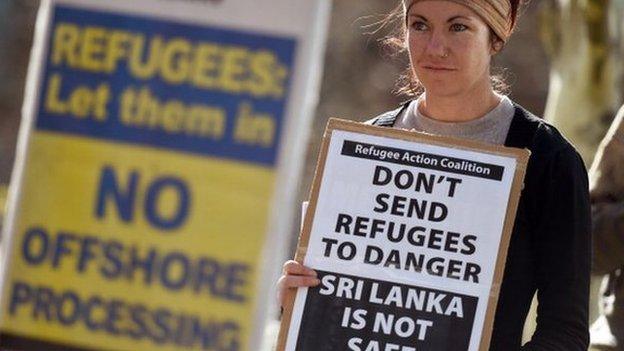Australia's refugee solution: An expensive joke?
- Published
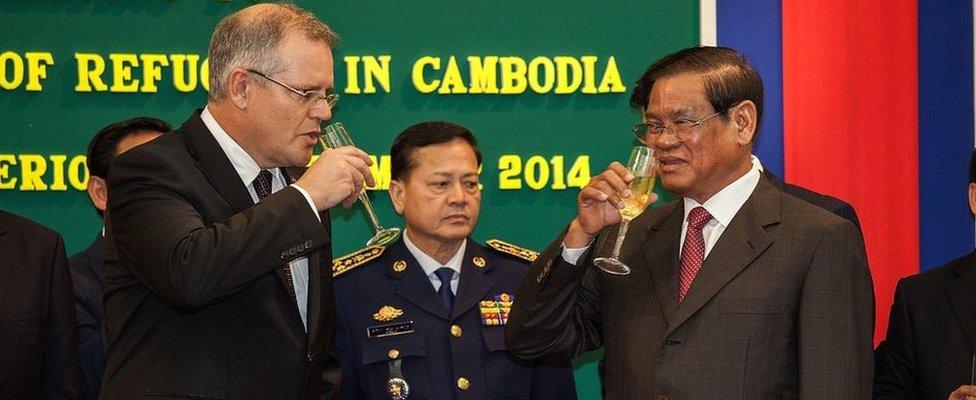
Australia and Cambodia popped champagne on signing the deal, but there may little left to celebrate
The scene is Phnom Penh, on 26 September 2014.
Overhead, a chandelier drips with crystals. Champagne glasses clink.
It was here that ministers from Australia and Cambodia forged a deal that would set in motion a resettlement programme for hundreds of refugees turned away by Australia and detained instead on the remote South Pacific island of Nauru.
The plan, widely criticised since its inception, would see genuine refugees transferred to Cambodia on a strictly voluntary basis.
They would then be provided with a start-up assistance package to help them integrate, find work and build new lives.
Australia made an initial aid pledge of A$40m ($31m; £20m), which was then topped up with another A$15.5m in resettlement costs.
Cut to a year later, however, and there is a distinct lack of interest on the part of the refugees.
Just three Iranians and a Rohingya man have taken up the offer and moved. Four more have volunteered.
But the Rohingya man has now asked to be sent back to Myanmar, also known as Burma, which he fled because his people are not officially recognised and he feared violent persecution.
According to Ian Rintoul, a director of the Sydney-based Refugee Action Coalition , this "speaks volumes for Cambodia's inability to provide a viable secure resettlement arrangement".
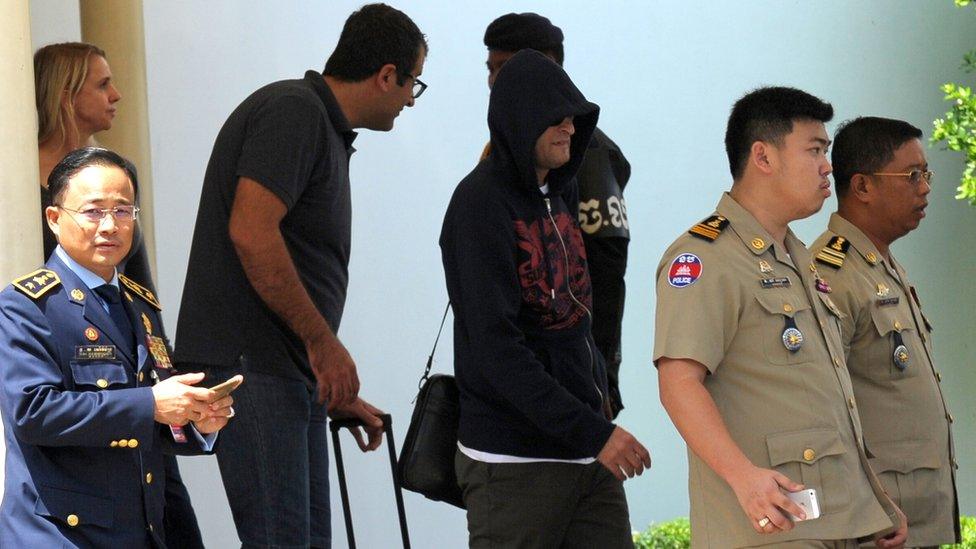
Three Iranians and one Rohingya were the first four to people to volunteer to leave Nauru for Cambodia
When the first four refugees arrived in June, they were swiftly taken to a gated villa on a quiet street in southern Phnom Penh, where they have been sequestered ever since.
They have had limited contact with outsiders, including other people living in the neighbourhood.
Officials at the International Organization for Migration who are assisting the refugees will not be drawn on their daily activities, citing privacy concerns.
Sister Denise Coghlan, who heads up the Jesuit Refugee Service (JRS) in Cambodia, has extensive experience in welcoming refugees to the country, as well as assisting them in settling in to life here.
But she says by email: "We offered to welcome them and take them out, but received no response."
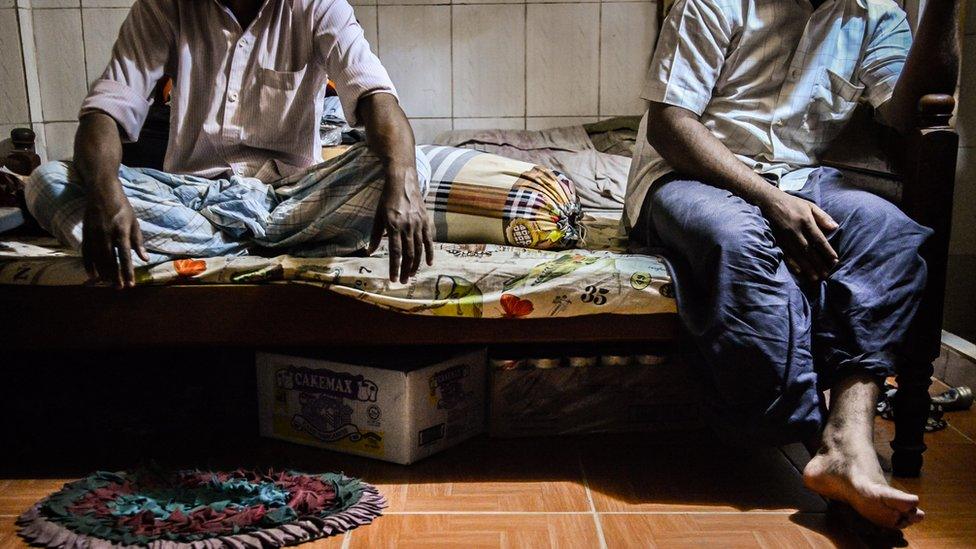
Other refugees, who made their own way to Cambodia said they had faced a lonely, frustrating time
One Rohingya refugee in Phnom Penh says the refugee experience could be lonely, frightening and stressful, but that he and two other Rohingya there wanted to meet the new arrival to dissuade him from going back.
When he first arrived, he took refuge in a mosque. His own application for asylum took more than three years to process and he has lived, for the past five years, in a dank room in an underground alleyway.
During Cambodia's months-long rainy season, the room floods frequently.
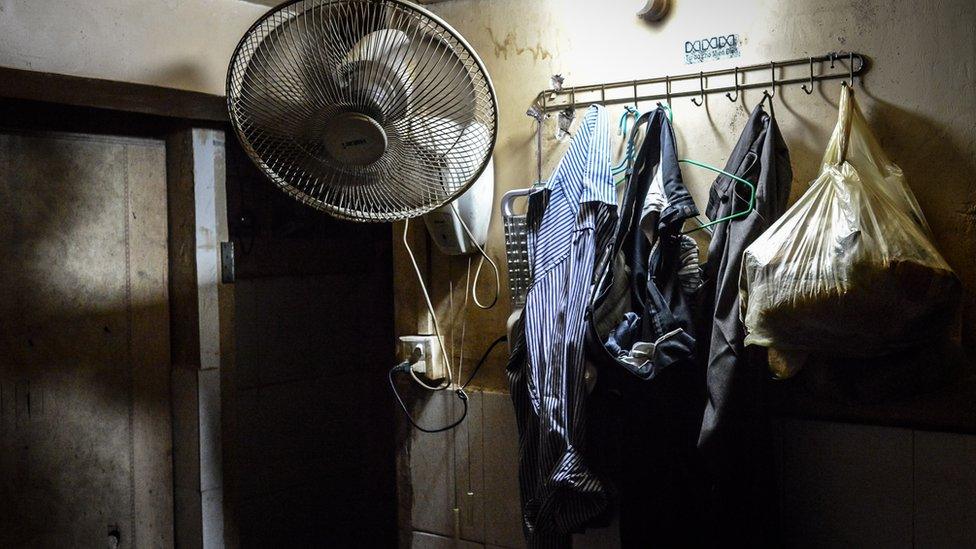
Life in Cambodia has not been easy for those refugees who made their own way there
"If I went back home, the government would kill me," says one Rohingya refugee, who spoke on condition of anonymity because he fears for the safety of his family in Myanmar.
"A few months ago, one of my uncles was killed in Rakhine state, but I didn't share this with anyone, because I want to keep my privacy.
"Cambodia is very, very hard to survive. We don't have any proper documentation.
"Rohingya are not educated persons. For them, finding a job in Cambodian society is very, very hard.
"For restaurant work, you earn less than $5 a day. How can you survive?"
He says Cambodians often yell "Indian, Indian" at him in a manner he feels is derogatory. "They don't like me - they hate us," he says.
He has also been forced out of the small space where he used to set up his roti cart.
A second Rohingya refugee, who also spoke on condition of anonymity, says he was unable to register the birth of his new daughter, because a village chief was demanding a $50 (£32) bribe to sign certain documents.
The refugees simply don't have that kind of money.
'Don't ask about money'
Critics say the refugee deal has proven to be a costly exercise in futility, in which the Cambodian government has emerged as the clear winner.
Australia's Immigration Minister Peter Dutton has insisted that "productive" talks are ongoing, and Cambodia's Interior Ministry spokesman Gen Khieu Sopheak has confirmed that three more Iranians and a Rohingya national have volunteered for resettlement.
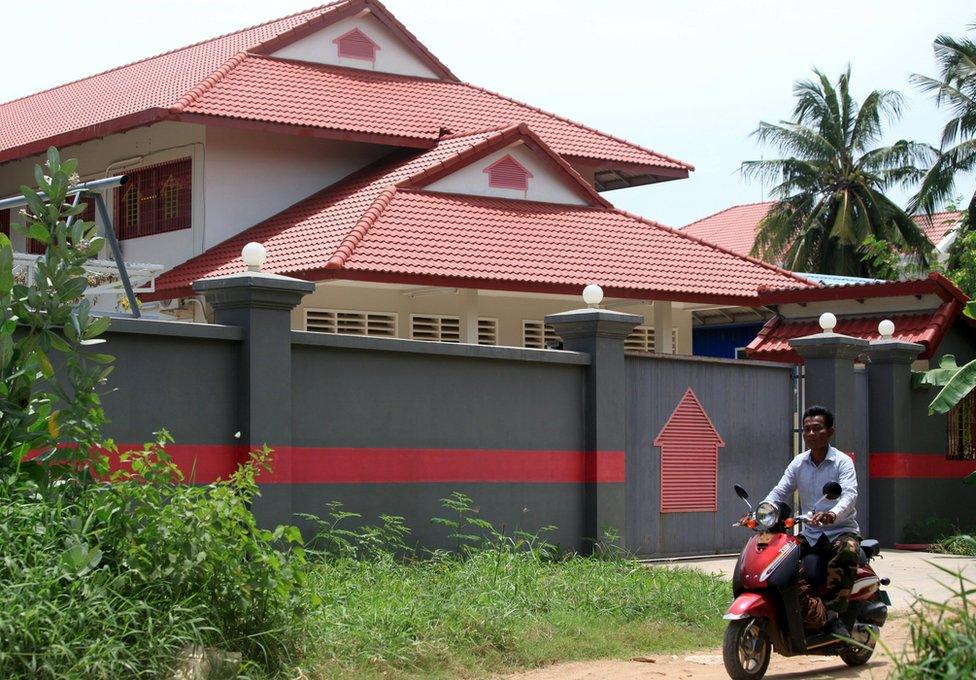
The new arrivals have had little contact with the outside world since arriving in June
"Please don't ask me about money," Gen Sopheak says in response to questions about how the millions in aid have been spent.
There are hundreds more detained on Nauru, where Mr Rintoul says Cambodia "has always been a joke".
Sweeteners, such as the A$15,000 that was offered to those in the first intake to Cambodia, have done little to sway opinion among the rest of the refugees on the island.
The deal "has effectively collapsed," says Mr Rintoul, and the millions of dollars spent on it are "to try and prop up an unlawful and illegal arrangement to process asylum seekers offshore".
He says the last Cambodian delegation to visit the island "spent their time wandering around, very lonely," while the first four who conceded to the transfer did so with resettlement in other countries in mind.
Sebastian Strangio, the author of an influential book on post-war Cambodia, says the deal was "a perfect meeting of partners… both sides had superficial motives".
The government of then-Australian Prime Minister Tony Abbott "wanted a deterrent to scare people away from attempting to reach Australia by boat, and the Cambodian government got something that burnished its international credibility", he says.
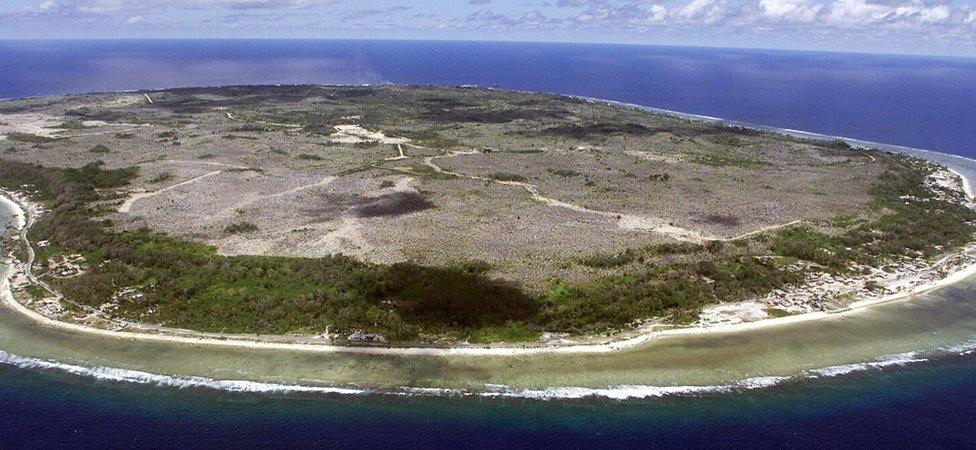
More refugees are to leave Nauru for Cambodia in the near future
For now, those in the villa live in a world far removed from the vagaries of Cambodian life.
Although one will leave, four more will arrive and begin the process of settling in. Beyond the walls of the compound, though, the future is uncertain and it is unclear if any will actually want to stay.
One person who is sure of the path he wishes to take is the Rohingya man, who arrived on his own and fought so hard to make something of himself here.
"I want to leave Cambodia immediately," he says. "I hope to go very soon."
- Published27 May 2015
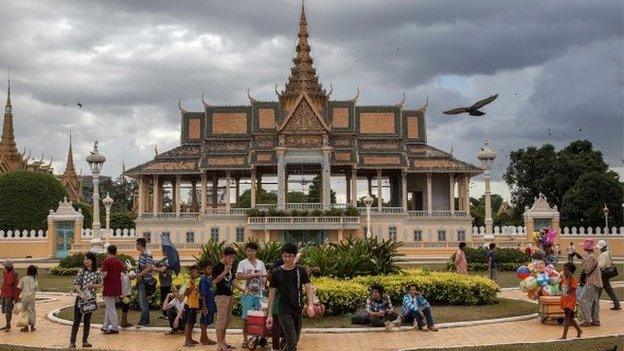
- Published31 October 2017
